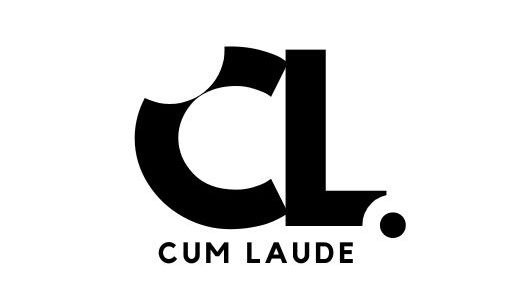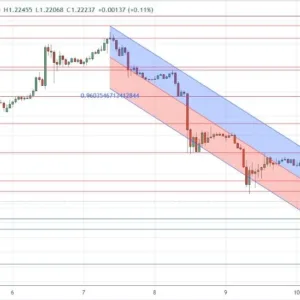- BTC/USD Signal Today -24/12: Profit-Taking Continues (Chart)
- Weekly Forex Forecast For DXY, EURUSD, GBPUSD, USDCHF, And USDCAD (January 6-10, 2025)
- Avenix Fzco set to influence the future of forex trading: The rise of FXEasyBot
- Dollar Index Slips from 2-Year High as FX Markets Brace for US Inflation Data — TradingView News
- EUR/USD Forecast Today 27/12: Faces Resistance (Video)
Last week ended on a positive note for the European stocks and negative note for the US stocks. Friday saw the S&P 500 dive more than 1%, while the Stoxx 600 closed 0.67% higher. We can’t drive major conclusions in a holiday-shortened and thin-trading-volume week, but last week’s price action looked pretty close to the narrative of rotation from tech to non-tech stocks that many investors expect to be the theme of next year.
Bạn đang xem: A Quiet Monday – Action Forex
Xem thêm : France Downgraded – Action Forex
And they could be right! The US stocks will end the year with the biggest gains since 1997 and the expectations have probably gotten too high for the AI related companies to satisfy. In numbers, the big tech stocks are expected to eke out a 30% earnings growth next year, but Bloomberg economists warn that the pricing of the S&P 500 implies a growth figure closer to 40%. Tech investors are already out looking for the next big thing, and the word ‘quantum’ is increasingly pronounced in discussions. Defiance’s Quantum ETF has broken above its long-term ascending channel top and gained up to 30% since the beginning of the month. One of the main catalyzers of the quantum rally was Google’s announcement that it made a significant progress in quantum computing with its new chip, Willow, at the start of the month, that demonstrated the capability to solve complex problems in under five minutes—a task that would take current supercomputers an estimated 10 septillion years. One issue with the quantum space is that the technology is not ready to be broadly commercialized, meaning that the market rally won’t be backed by impressive earnings reports, as with Nvidia.
Anyway, we will see. Coming back to our Magnificent 7 stocks, they lost more than 2% on Friday. Netflix wasn’t an exception to the trend as the new Squid Game made a less-than-ideal debut with just 64% rating on popcornmeter on rotten tomatoes – very low for a show that’s first season saw a historical attention from watchers around the world, became the platform’s most-watched show at its launch, with over 142 million member households viewing it within the first 28 days, and helped Netflix add millions of new subscribers to its platform. The disappointment of the second season not only weighed on Netflix shares, but pulled the related Korean shares lower as well. Dexter studios for example sank 24% on Friday and is down by another 5% today in Seoul.
Xem thêm : EUR/USD Analysis Today 26/12: Remains Bearish (Chart)
And South Korea continues to sit on the headlines beyond a lacklustre attention for its Squid Game 2. The political shenanigans are now topped by a deadly airplane crash that costed the lives of 179 people. Jeju air tumbled at the open, even though the losses were partially recovered at the time of writing.
Beyond Korea, Asian markets opened the week on a negative note. The Japanese Nikkei index and Australian stocks were offered this Monday with trading volumes nearly 20% lower the Japanese market, and 55% lower for their Australian peers (Bloomberg). Futures point at an unappetizing start for the last Monday of the year both in Europe and in the US, and the price moves could be exaggerated with low trading volumes.
In the FX, the US dollar is flat. The EURUSD sees resistance into 1.0435, while Cable is offered into 1.26 level. The USDJPY continues to flirt with the 158 resistance as traders and government officials are getting caught up in heated debates. The country’s finance minister for example said that the government will take appropriate steps against excessive moves in the yen, whereas the Bank of Japan (BoJ) members kept the possibility of a rate hike on the table for January during a live discussion. Funnily, the latest remarks from this live session weren’t fully in line with what the Governor Ueda suggested during the announcement of the latest BoJ decision, where he said that the BoJ needs time to understand the implications of Trump policies and that the latter could take until March-April to become clearer. Note that some economists highlight that if the BoJ didn’t take action this month, it wasn’t only because of Trump, but also because of domestic concerns over political backlash between Ishiba’s minority government and the opposition on budget and tax reforms. It’s unclear if those uncertainties will be lifted in time for the BoJ’s next policy meeting but the Trump excuse will certainly hold for a few more months! Until then, the USDJPY will probably continue pushing higher with increased risk of a direct intervention approaching the 160 level – which will probably be the line in the sand set by the Japanese officials to halt the yen’s selloff.
Nguồn: https://cumlaude.fun
Danh mục: News






